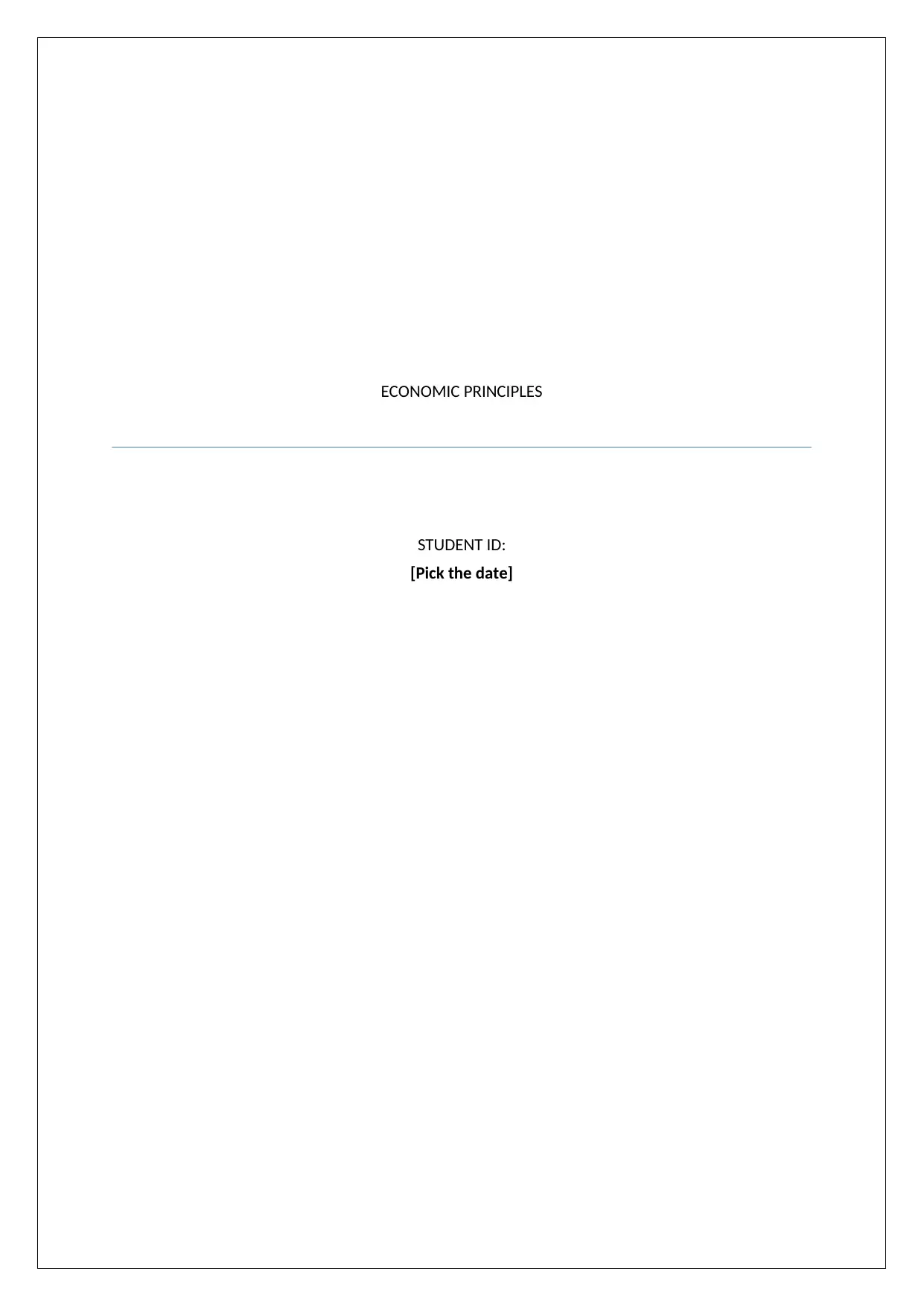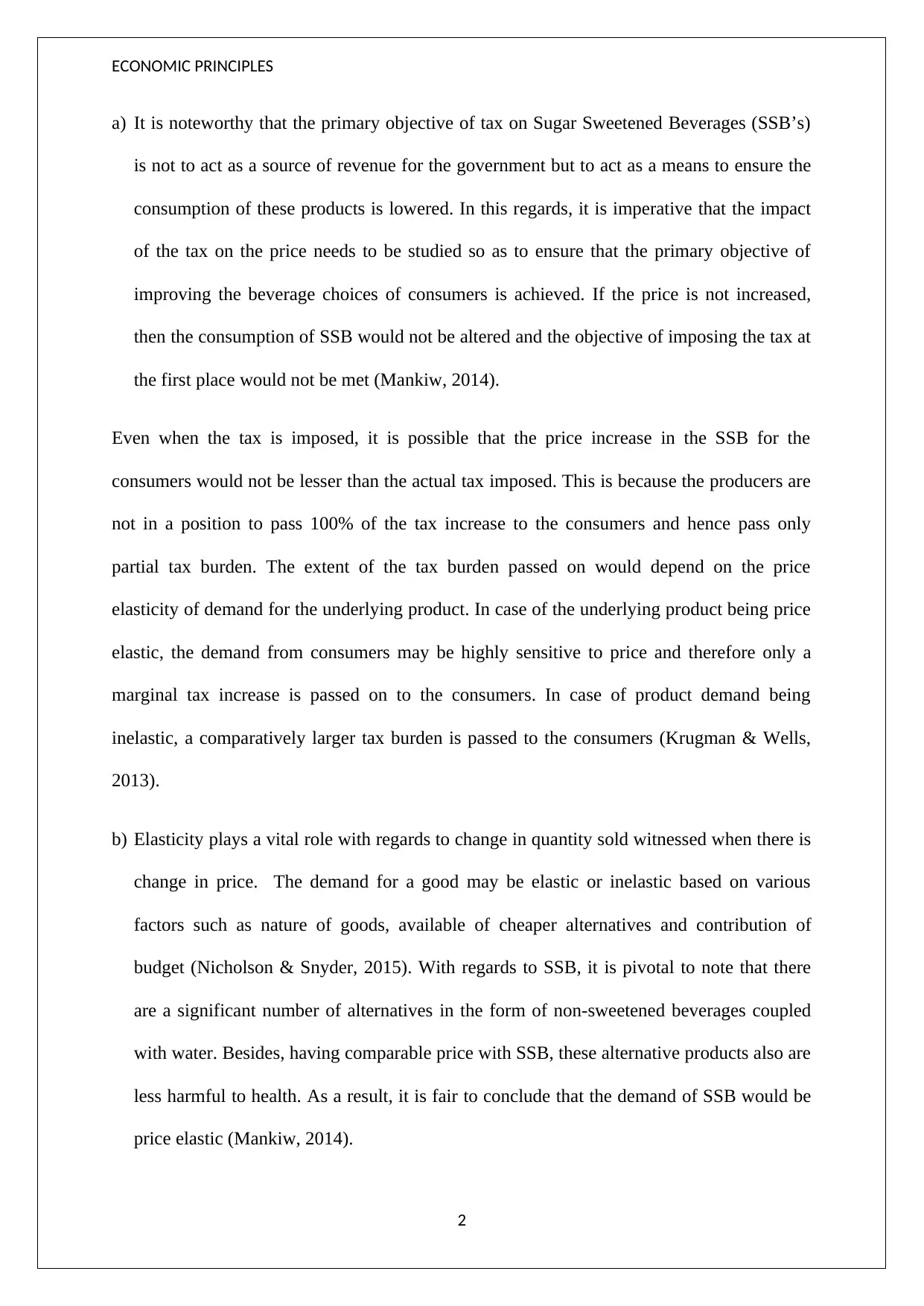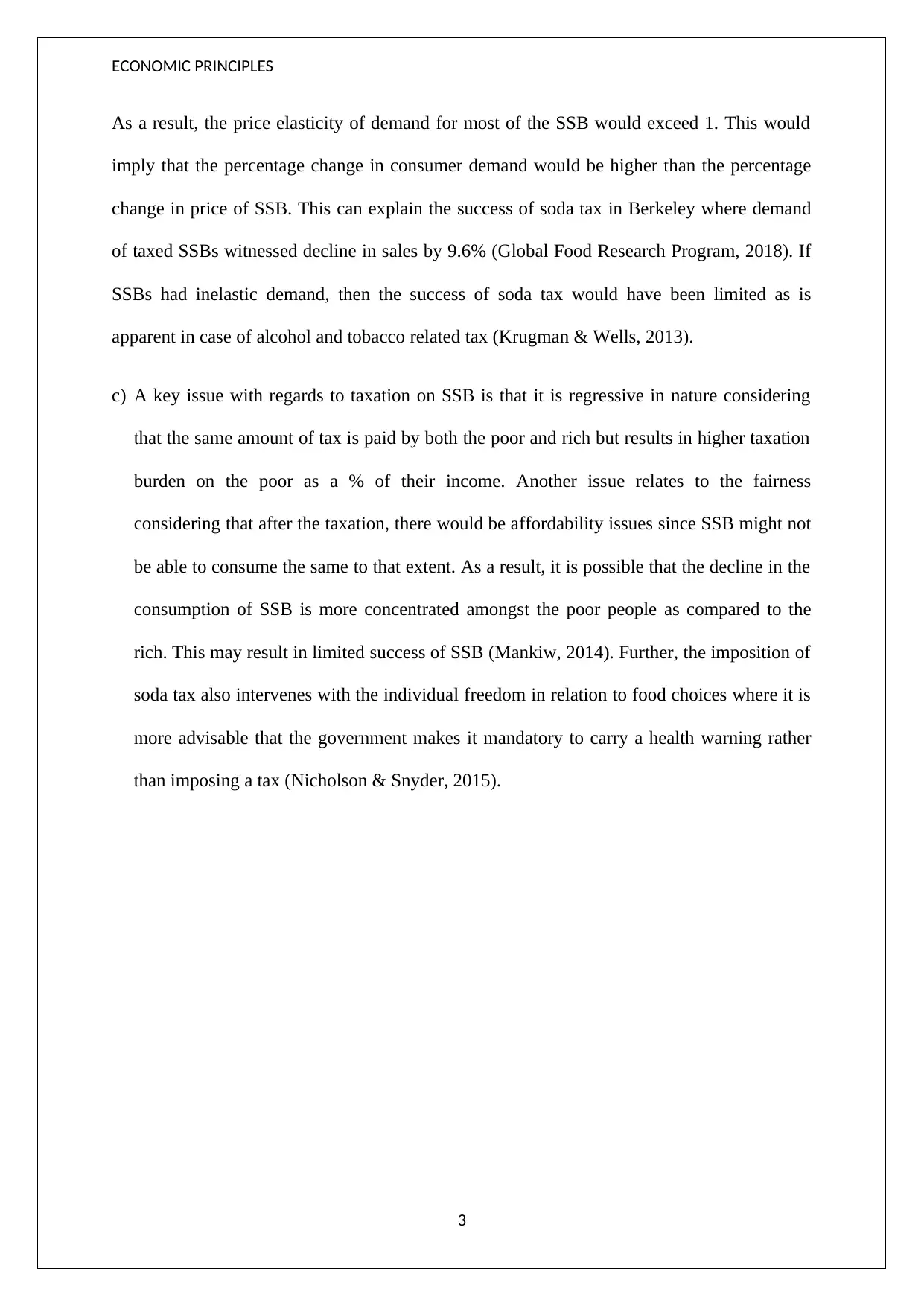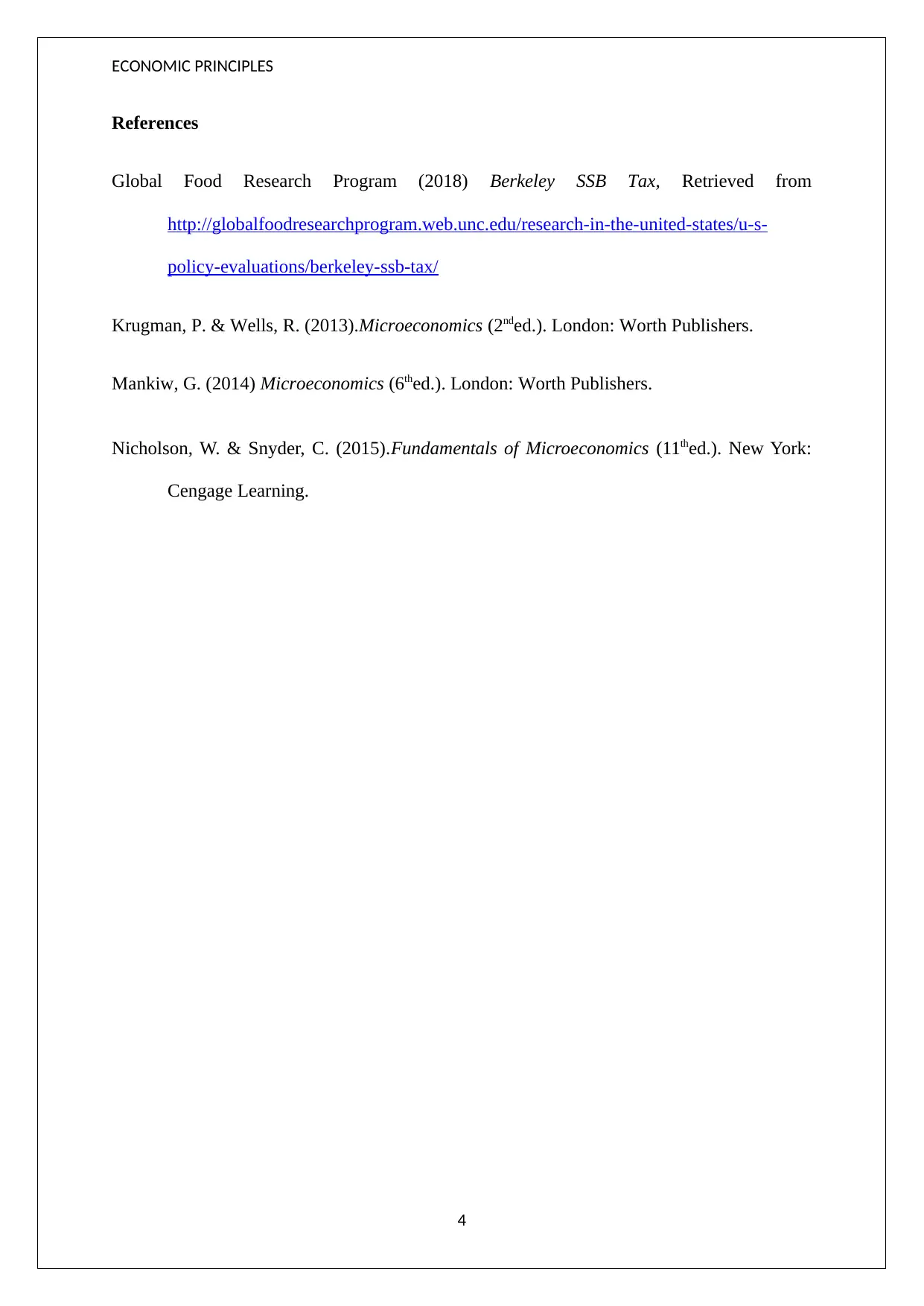Economic Principles (ECON7200) Week 3 Assignment: Sugar Tax Analysis
VerifiedAdded on 2023/04/22
|4
|761
|252
Homework Assignment
AI Summary
This assignment solution addresses the ECON7200 Economic Principles Week 3 assignment, specifically focusing on Part 3.1 of the Empirical Project 3, which involves measuring the effect of a sugar tax on Sugar Sweetened Beverages (SSBs). The solution analyzes the primary objective of SSB taxes, which is to lower consumption, and discusses the importance of studying the tax's impact on price to achieve this goal. It explores price elasticity of demand, distinguishing between elastic and inelastic scenarios and how they affect the tax burden passed on to consumers. The assignment also examines the regressive nature of SSB taxation and its fairness implications, considering the potential for affordability issues, and discusses the intervention with individual freedom in relation to food choices. The solution references relevant literature and provides a comprehensive understanding of the economic principles involved in sugar tax analysis.
1 out of 4











![[object Object]](/_next/static/media/star-bottom.7253800d.svg)